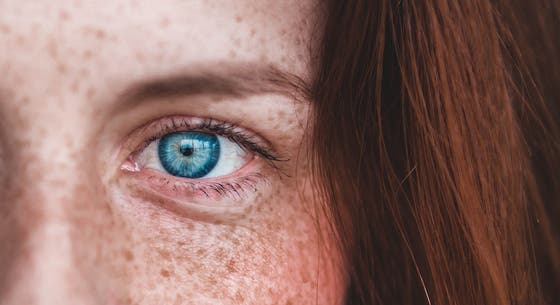Jun 1: Improved clinical care in children with JIA associated uveitis resulted in fewer complications

Novel treatment regimens and new international multidisciplinary guidelines have shown major improvements over the last decade, resulting in less complications and blindness and less visual impairment in children with juvenile idiopathic arthritis (JIA) associated uveitis. Also, a better insight in the pathogenesis was achieved and successful diagnostic and treatment modalities were introduced. These findings were presented by Roos Wennink (UMC Utrecht) who defended her PhD thesis on May 17th.
Uveitis is a severe and potentially blinding eye disease and is characterized by inflammation of the iris, choroid and retina. Uveitis can lead to complications that result in severe vision loss or even blindness. Over the past years novel treatments and guidelines have been developed. PhD candidate Roos Wennink (Department of Ophthalmology and Center for Translational Immunology, UMC Utrecht) aimed to gain new insights in the disease burden, clinical course, prognosis and molecular aspects of children with non-infectious uveitis.
Disease burden
In this thesis, Wennink and colleagues show that the prevalence of fatigue in children and adolescents with non-infectious uveitis is comparable to their healthy peers of the same age. However, fatigue was associated with a lower health-related quality of life. Furthermore, the investigators found that the number of complications and blind eyes have decreased over the past years: in a retrospective study in children with JIA-uveitis the number of blind eyes (7 percent vs. 2 percent, p=0.01) and visually impaired eyes (8 percent vs. 0 percent) at 5 years follow-up was significantly higher in children diagnosed with uveitis <2010 as compared to children diagnosed >2010 (p=0.01). Lastly, they described a new effective treatment strategy using tocilizumab for children with severe non-anterior uveitis.
Immune profiling of pediatric non-infectious uveitis
The investigators used new techniques to further unravel the disease mechanism of uveitis to facilitate tools that will enable personalized medicine. Their data shows heterogeneity in B cells in patients with JIA-uveitis. This suggests a role for specific B cell subsets in the etiology of uveitis in JIA.
In addition, they examined HLA associations and the results show that clinically different forms of uveitis have the same HLA associations. These genetic predispositions may influence antigen presentation. Finally, Wennink and colleagues examined whether they could predict treatment response with help of proteins in the blood (biomarkers). Using a profile of 10 proteins in the blood at diagnosis, they were indeed able to predict treatment response during follow-up. This ability to predict response represents a step towards the development of more patient-centered care.
PhD defense
Roos Wennink (1989, Oss) defended her PhD thesis on May 17, 2022 at Utrecht University. The title of her thesis is “Deciphering the impact of childhood non-infectious uveitis: a clinical, genetic and immunological framework for personalized medicine”. Supervisor was prof. dr. Joke de Boer (Department of Ophthalmology, UMC Utrecht) and co-supervisor were dr. Jonas Kuiper (Department of Ophthalmology and Center for translational immunology, UMC Utrecht) and dr. Viera Koopman-Kalinina Ayuso (Department of Ophthalmology, UMC Utrecht). In March 2022, Roos Wennink started her residency in ophthalmology at UMC Utrecht.
